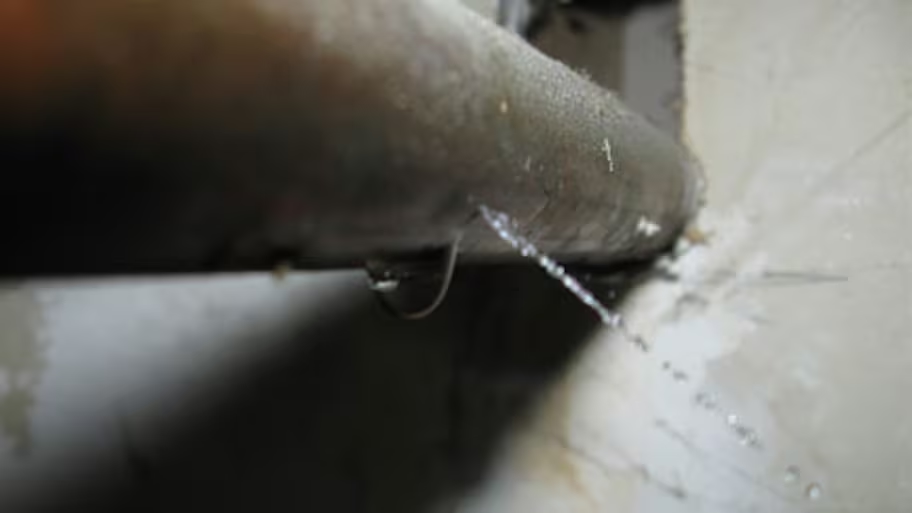Unveiling the Primary Causes of Water Leaks Inside The House
Unveiling the Primary Causes of Water Leaks Inside The House
Blog Article
Listed here down the page you can get a bunch of excellent expertise all about How to detect water leaks in your home.

Leaks not just trigger waste of water but can likewise cause unneeded damages to your home and also promote unwanted natural growth. Sadly, water leakages might go unnoticed considering that the majority of the pipework in our home is hidden. By recognizing and looking for daily situations that cause leakages, you can protect your house from future leakages and unneeded damages. Today, we will certainly take a look at 6 leakage causes that may be triggering your pipelines to trickle.
Intruding roots
The majority of water leakages start outside the house rather than inside it. You may observe damp spots or sinkholes in your backyard, and also that could mean that tree roots are attacking water lines creating water to seep out.
Corroded water systems
As time goes by, your plumbing system ages and corrosion such as rust may start gnawing the pipelines. This could be the source of staining or bending on your pipes. This asks for an examination with your plumber immediately. Think about replacing the pipelines because they are at a greater risk of deterioration than the newer designs if our plumbing system is old.
Faulty Pipeline Joints
The point at which your pipes connect is often the weakest web link in the waterline. Pipe joints can wear away gradually, causing water leakages. The majority of pipeline joints are not conveniently noticeable. If you have noisy pipes that make ticking or banging noises, particularly when the warm water is activated, your pipeline joints are possibly under a great deal of stress. It is a good idea to have your plumber check your system annually.
Immediate temperature level modifications.
Severe temperature level changes in our pipes can trigger them to expand and also contract unexpectedly. This development as well as tightening may create cracks in the pipes, specifically if the temperature are below freezing. If you kept an eye on just how your plumbing functions, it would be best. The presence of the formerly discussed circumstances frequently indicates a high risk.
Poor Water Connectors
At times, a leakage can be caused by loose hoses as well as pipes that provide your home appliances. In instance of a water links leakage, you might notice water running directly from the supply line or puddles around your home appliances.
Blocked Drains
Blocked drains may be irritating and inconveniencing, but they can in some cases end up causing an overflow resulting in burst pipes. Keep getting rid of any products that might decrease your drains that could clog them to avoid such inconveniences.
All the above are reasons for leaks yet not all water leaks result from plumbing leakages; some leaks could come from roofing system leakages. All leaks should be fixed promptly to avoid water damages.
Leaks not only create waste of water yet can likewise create unnecessary damages to your house and also advertise unwanted organic development. By looking as well as comprehending for everyday situations that create leaks, you can safeguard your residence from future leakages and also unneeded damages. Today, we will look at six leakage causes that might be triggering your pipelines to trickle.
At times, a leakage can be caused by loosened hose pipes and also pipelines that supply your appliances. In instance of a water connections leak, you might notice water running straight from the supply line or puddles around your devices.
How To Check For Water Leak In Your Home
How To Check for Leaks
The average household's leaks can account for nearly 10,000 gallons of water wasted every year and ten percent of homes have leaks that waste 90 gallons or more per day. Common types of leaks found in the home are worn toilet flappers, dripping faucets, and other leaking valves. These types of leaks are often easy to fix, requiring only a few tools and hardware that can pay for themselves in water savings. Fixing easily corrected household water leaks can save homeowners about 10 percent on their water bills.
To check for leaks in your home, you first need to determine whether you're wasting water and then identify the source of the leak. Here are some tips for finding leaks:
Take a look at your water usage during a colder month, such as January or February. If a family of four exceeds 12,000 gallons per month, there are serious leaks.
Check your water meter before and after a two-hour period when no water is being used. If the meter changes at all, you probably have a leak.
Identify toilet leaks by placing a drop of food coloring in the toilet tank. If any color shows up in the bowl after 10 minutes, you have a leak. (Be sure to flush immediately after the experiment to avoid staining the tank.)
Examine faucet gaskets and pipe fittings for any water on the outside of the pipe to check for surface leaks.
Undetected water leaks can happen without the home or business owner even realizing. If you suspect a water leak, but not able to find the source. It is time to contact a professional water leak detection service, The Leak Doctor.
How To Find a Water Leak In Your Home
https://www.leakdoctor.com/blog/How-To-Check-For-Water-Leak-In-Your-Home_AE197.html

As a keen reader about Top Causes of Home Water Leaks, I was thinking sharing that piece of content was a great idea. Sharing is nice. You never know, you may very well be helping someone out. Thanks for your time. Visit again soon.
Save your home, call now! Report this page